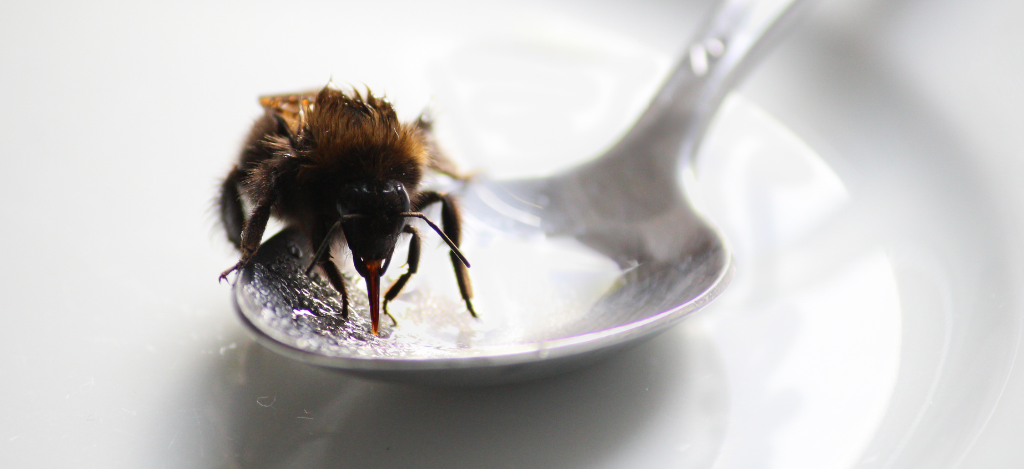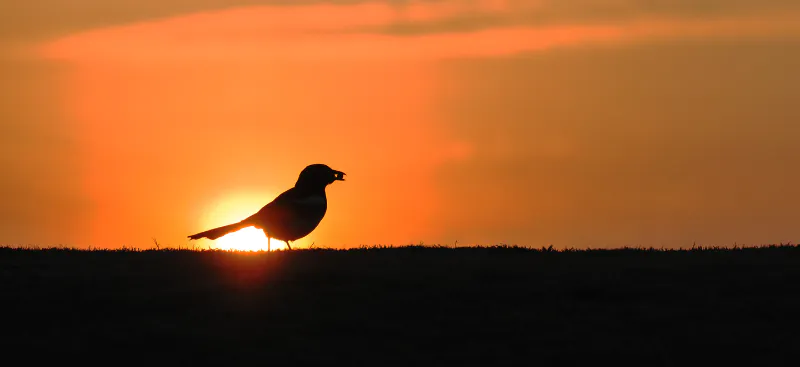How to Help Your Garden Wildlife During a Heatwave
Scientists warn that the UK will see an increasing number of summer days due to climate change. While the thought of having more opportunities to sip margaritas in the sun sounds like a perfect dream, the hotter days could be a nightmare for our garden wildlife. When it fails to fall below 20°C in the evenings, our wild birds, hedgehogs, and even insects face more obstacles to overcome if they wish to survive the hot season. Thankfully, there are some simple elements we can add to our gardens to give them the best chance. Here are some easy ways to help your garden wildlife during a heatwave that won't eat into your tan time.
Water water, EVERYWHERE
We're serious, put it everywhere! And don't think you need a fancy bird bath or water fountain to offer your thirsty friends a drink; any old shallow bowl is better than no bowl.
If you want to make your water source even safer for your garden wildlife, fill it up with (clean) stones or rocks, which give all animals a perch to stand on and easy access in and out of the water.
Catching diseases is the last thing your garden wildlife needs. Be sure to clean water containers regularly and dry them before refilling to reduce the risk of spreading infection.
David Mitchell, buying manager for horticulture at Wyevale Garden Centres, perfectly rounds up our tips for keeping your wildlife happy during a heatwave, saying "all wildlife needs water and the best way to ensure your garden stays wild through a hot summer is to provide water for birds, stop plants from going thirsty, and keep ponds topped up with clean water."
Top Tip!
To minimise the risk of a predator attack, avoid putting water dishes near bushes and trees. Cats are notorious for sneaking up on birds and love to hide in shrubs until they give their deadly surprise.
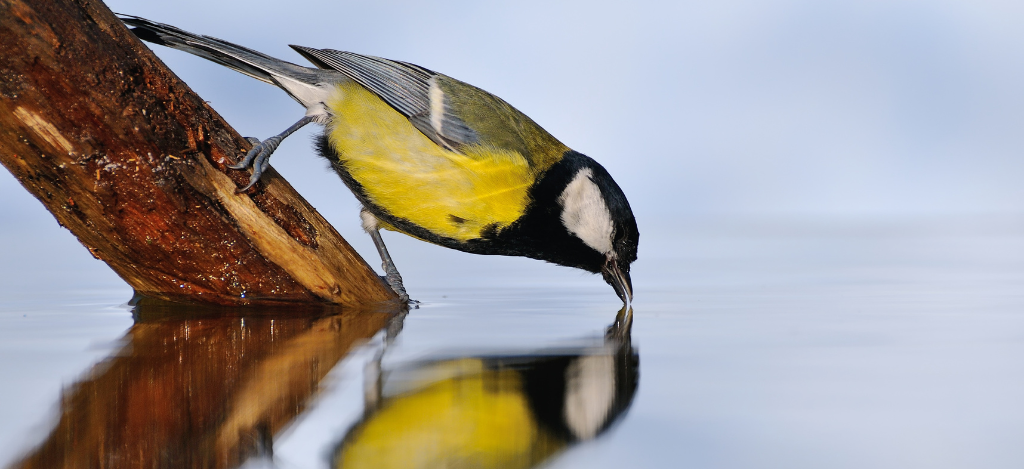
Don't forget about bugs
Remember the circle of life also includes insects, and a hydrated insect is a juicy meal for birds and mammals.
Watering your plants is one of the best ways to provide hydration for bees and butterflies, and watering your grass will keep a variety of worms and burrowing bugs moist.
You can even top up your garden with some mealworms or calciworms to make it extra easy for wildlife to find food. Soak dried mealworms in warm water for 30 minutes before offering them out to pack them with moisture and make them easier for wildlife to eat.
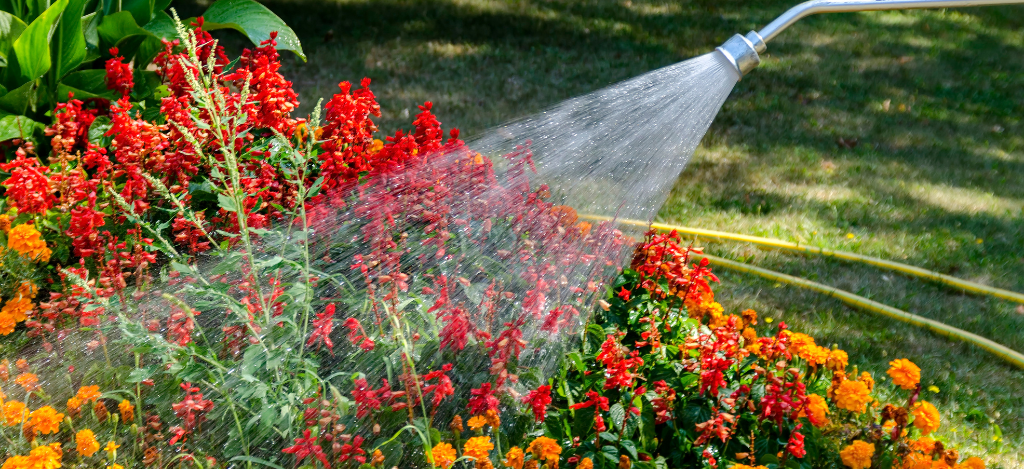
Make some shade
Wildlife of all kinds will appreciate the respite that a little bit of shade can provide during a heatwave. Your garden may already be giving them a damp, cool environment to shelter in, as trees, bushes, and ivy are perfect for supplying shade to birds, bats, and insects. So you may want to think twice before getting the secateurs out this summer. If your garden lacks foliage, now is the perfect time to plant some!
Ground-dwelling animals like hedgehogs, mice and creepy crawlies will appreciate a nice pile of leaves or logs. Be sure to check your piles before burning if you're planning a bonfire. Ready-made habitats such as hedgehog barns and bat boxes are also great for providing shade and shelter during hot days and nights. Wild birds also appreciate roofed bird tables or nest boxes designed to withstand the heat.
And don't forget about fish! Ponds in direct sunlight can heat up and lose water quickly, so provide a shaded area for your water wildlife to hide under and top up the water when necessary.
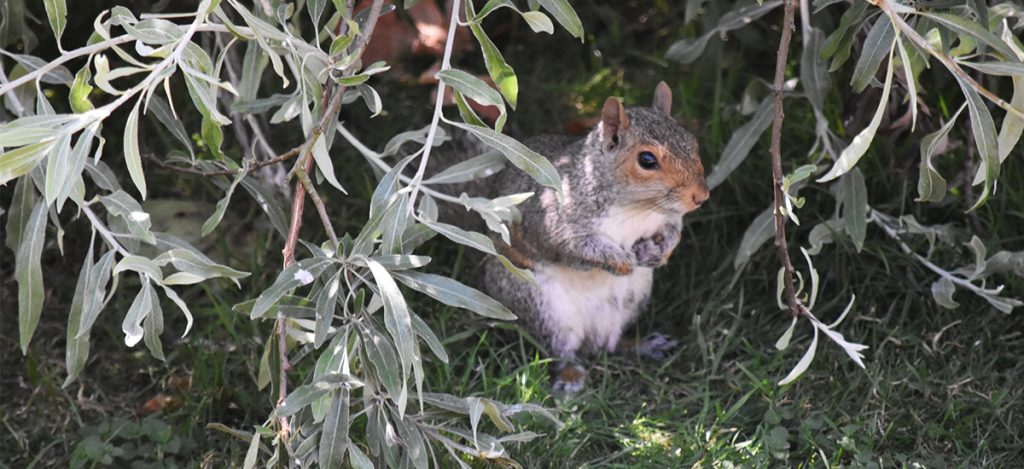
Offer some food
Filling up the bird feeders with oily seeds like Sunflower Hearts and suet treats can offer an energy boost to your garden birds during a heatwave. Healthy proteins and oils provide birds with much-needed nutrients to help keep little wings beating during adverse weather.
Hedgehogs will also gobble up a bowl of wet cat or hedgehog food - but make sure it's free from milk as their tiny tums can't digest lactose. Wet food can offer hogs a 2 for 1 dose of energy and hydration.
On hot days, you'll see more bees lying on the ground, taking a breather as the heat exhausts them. Offer them a few drops of sugar water on a teaspoon or drink cap in a sheltered place and allow the bee time to recuperate. Avoid using brown sugar as it is harder for bees to digest.
Don't step on a bee!
The hot weather can make our hardworking pollinators exhausted, which is why you may see a bee laying on the ground while it recovers. Offer them a boost of energy with a water and sugar solution. You can use a spoon or bottle cap to feed them. This will give them enough energy to fly back to their hive.
